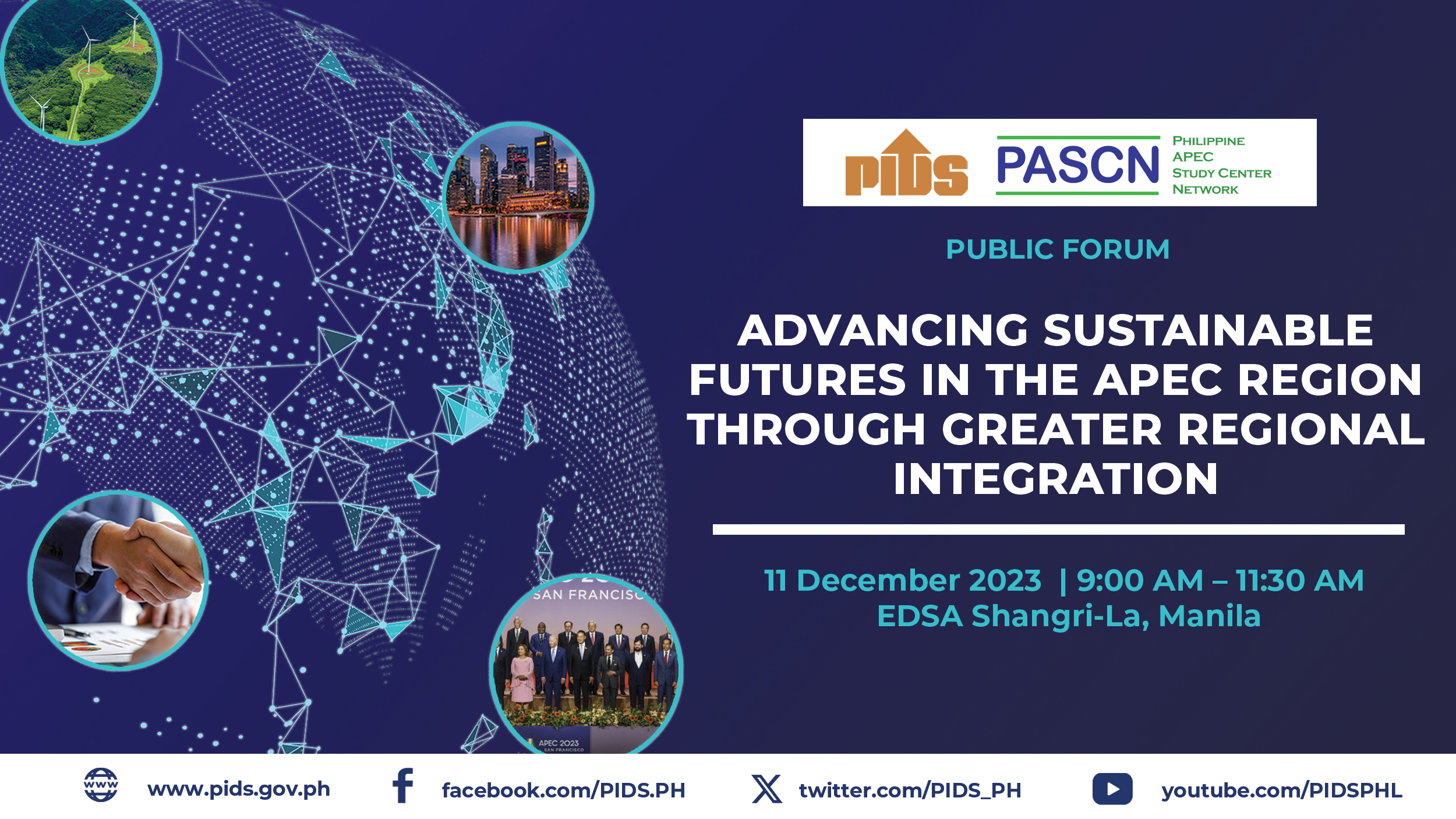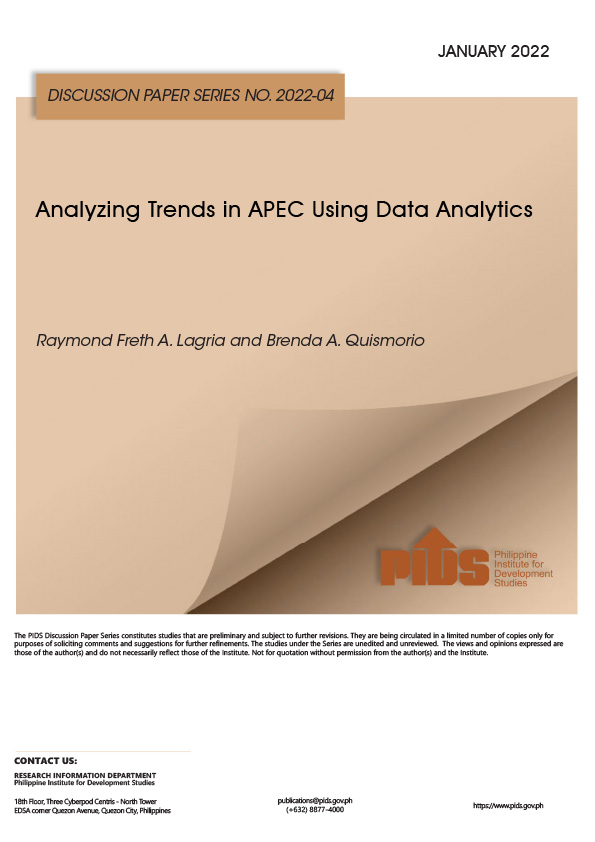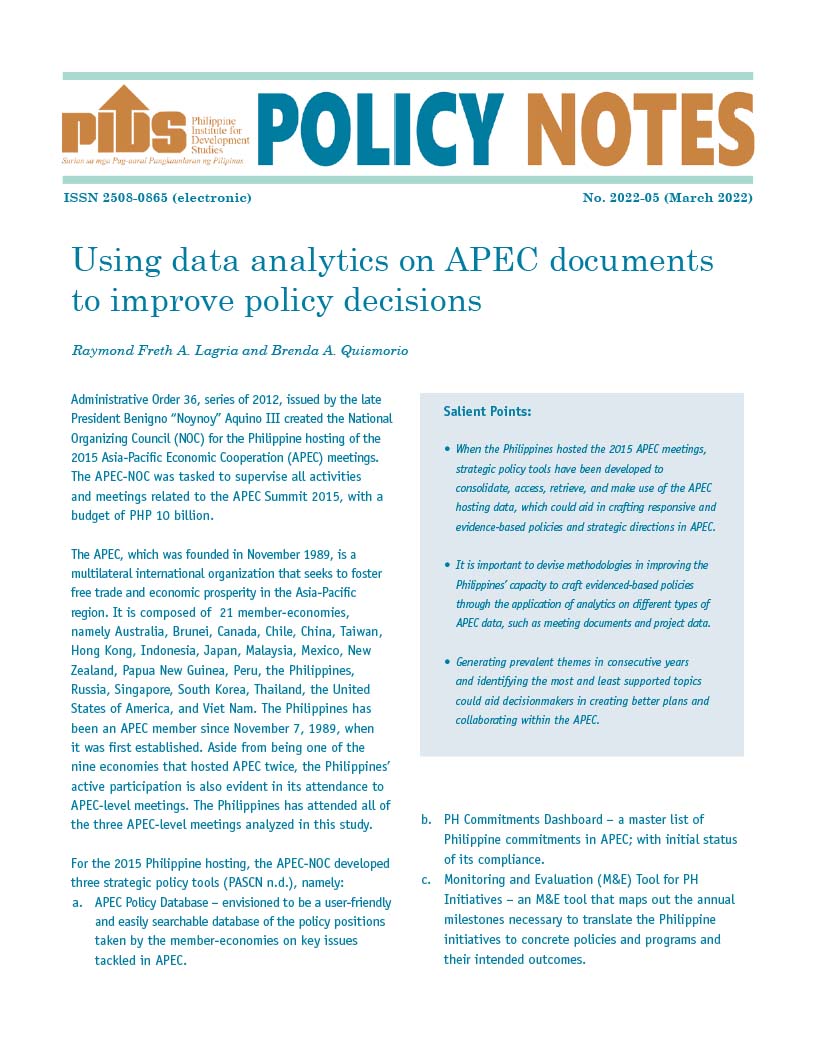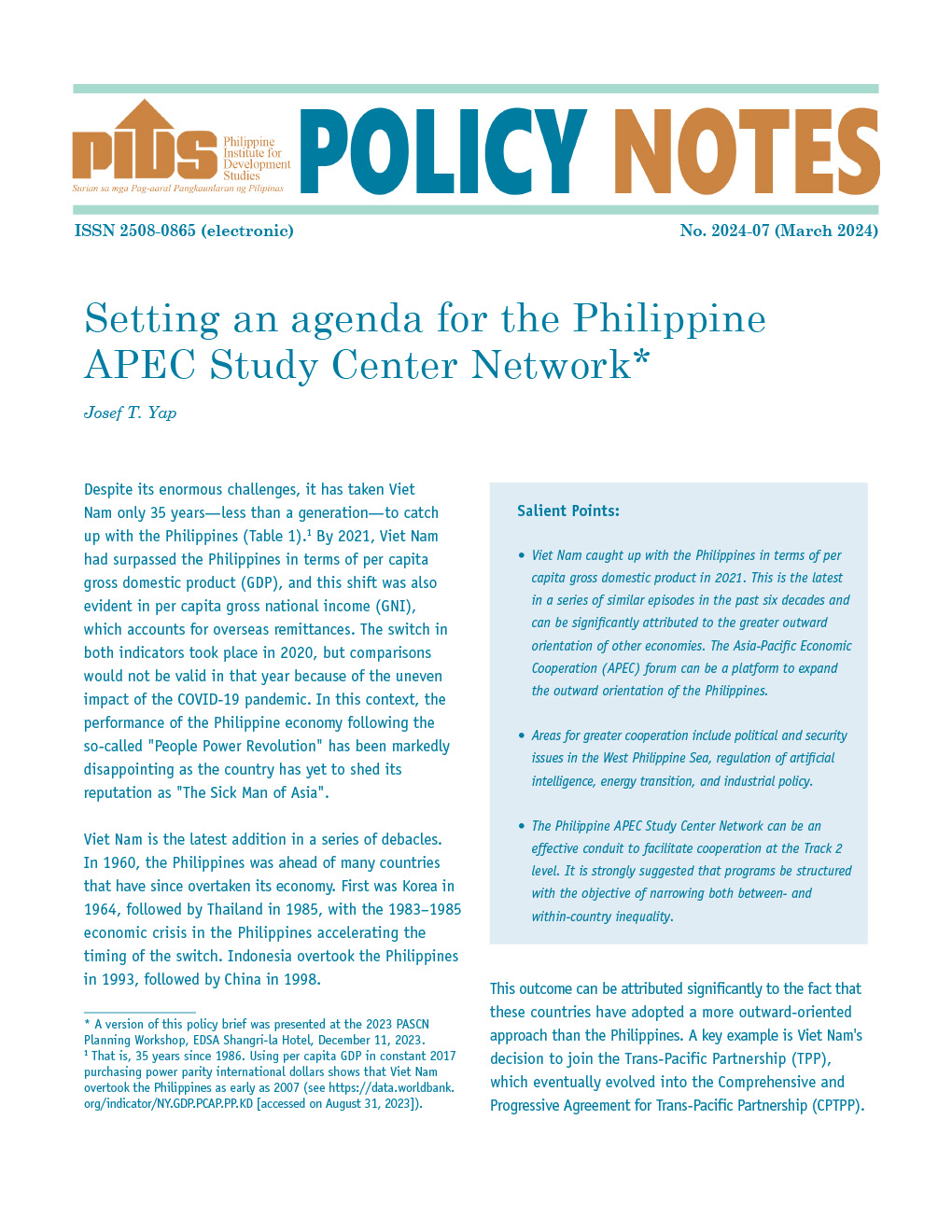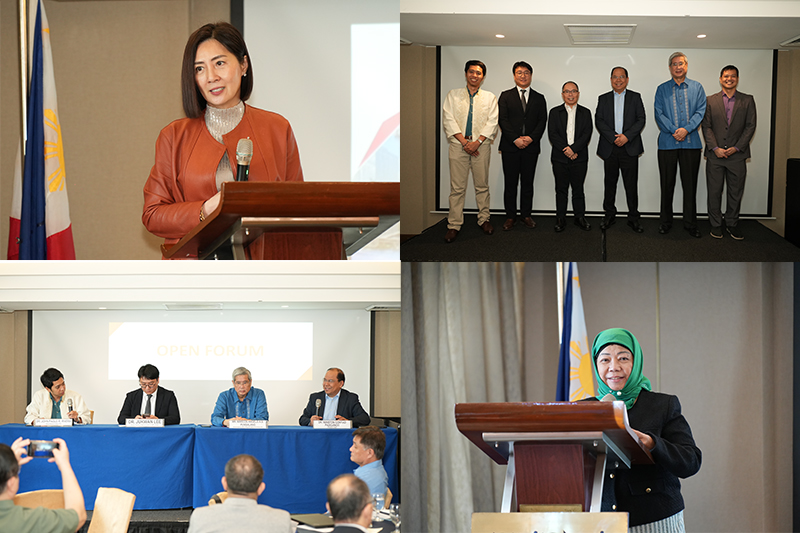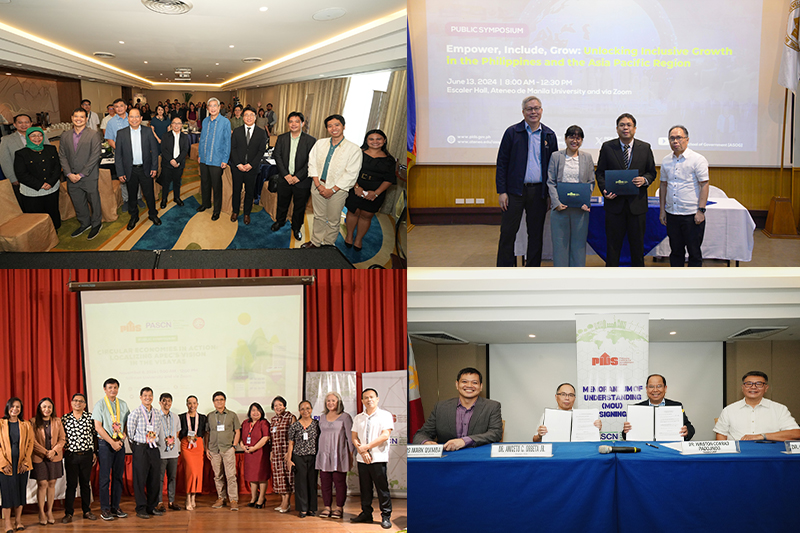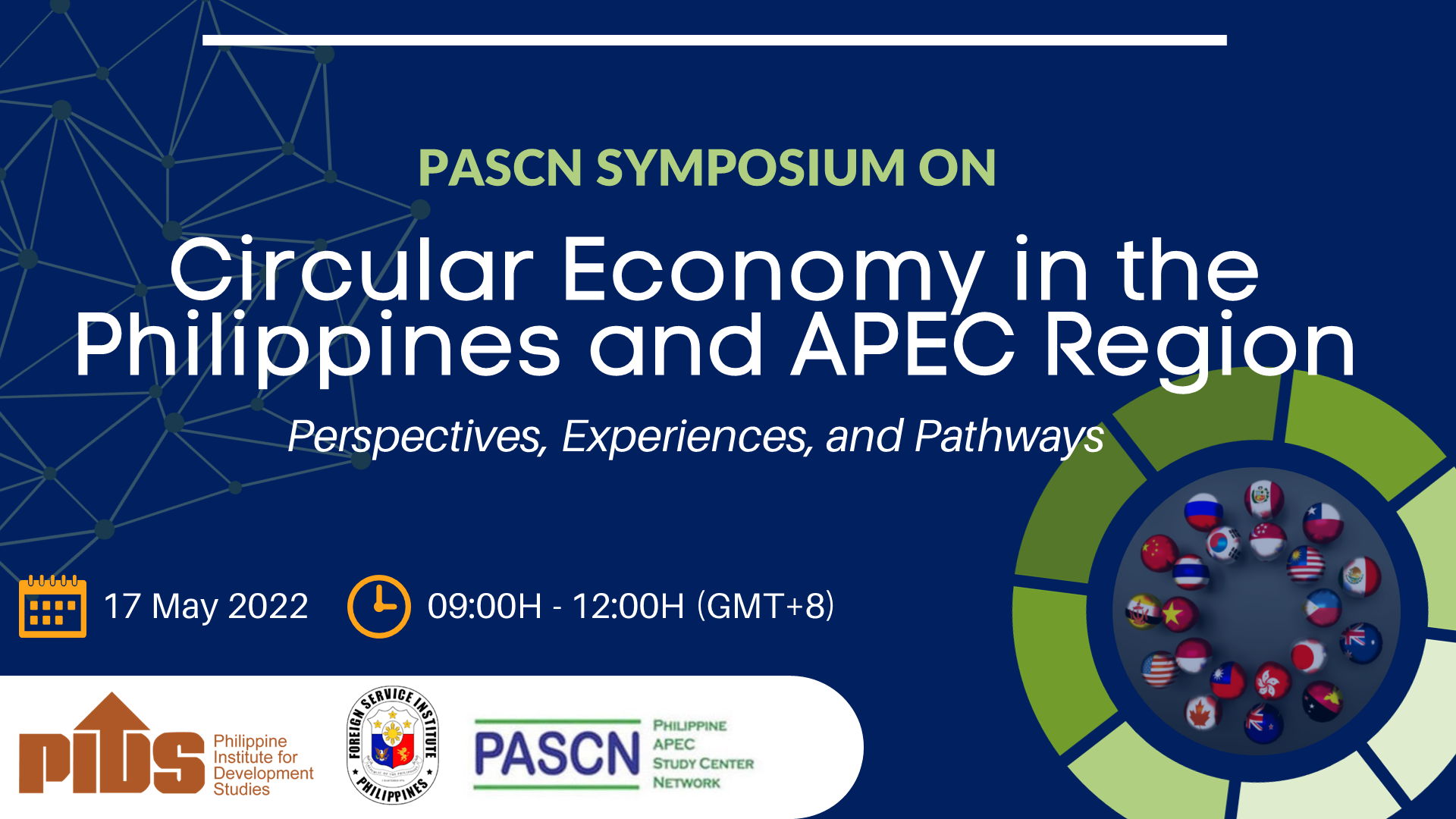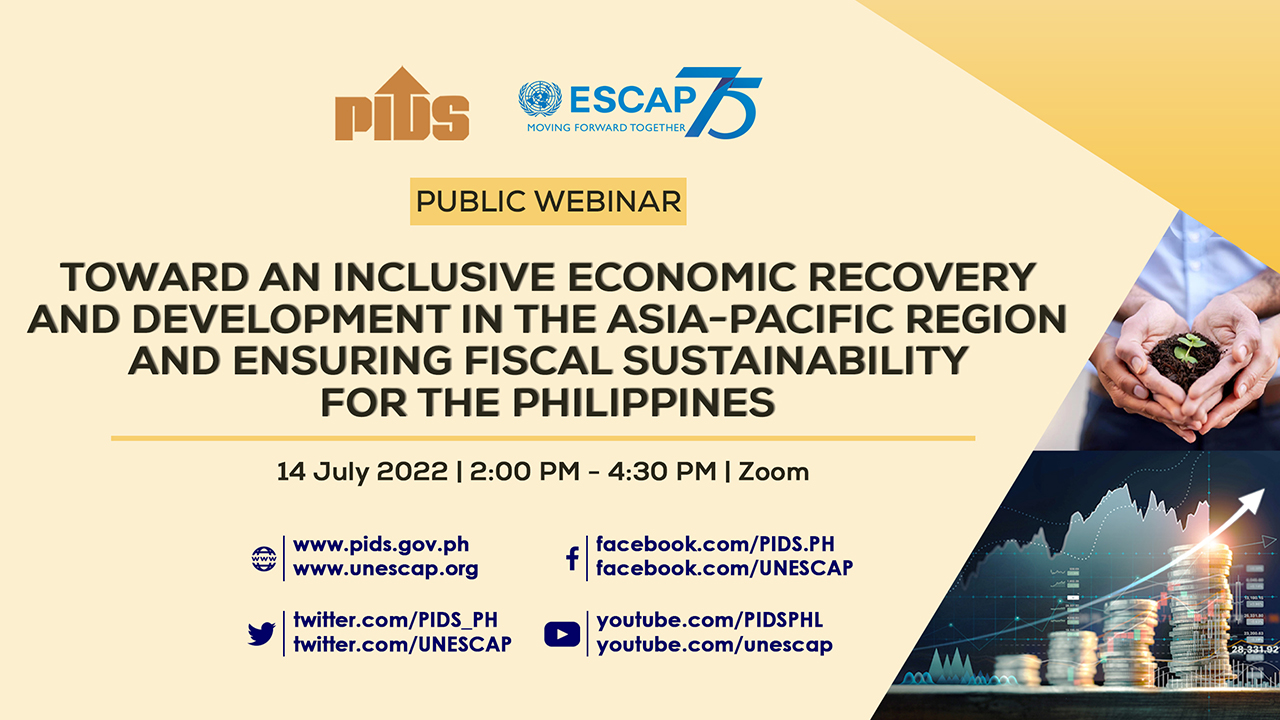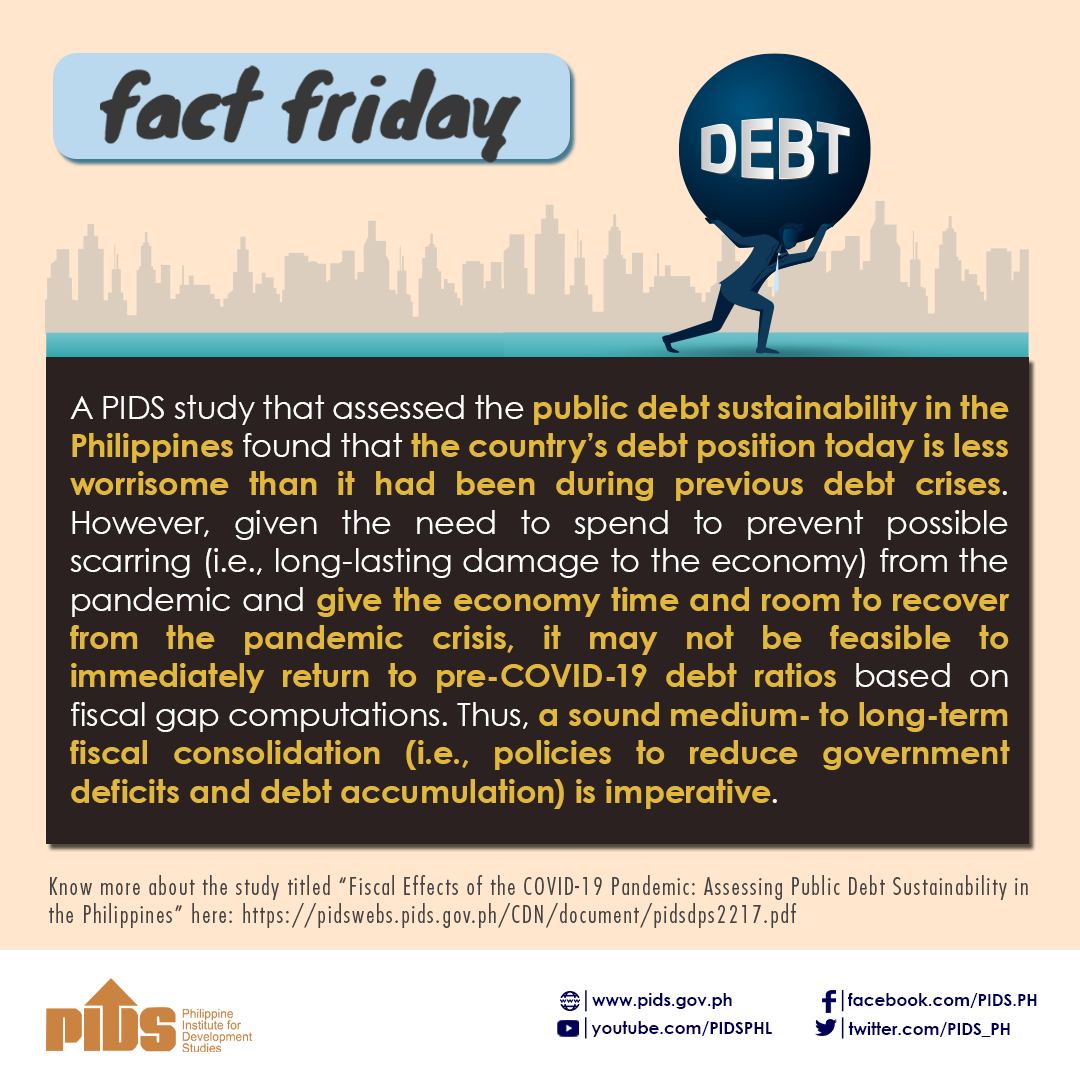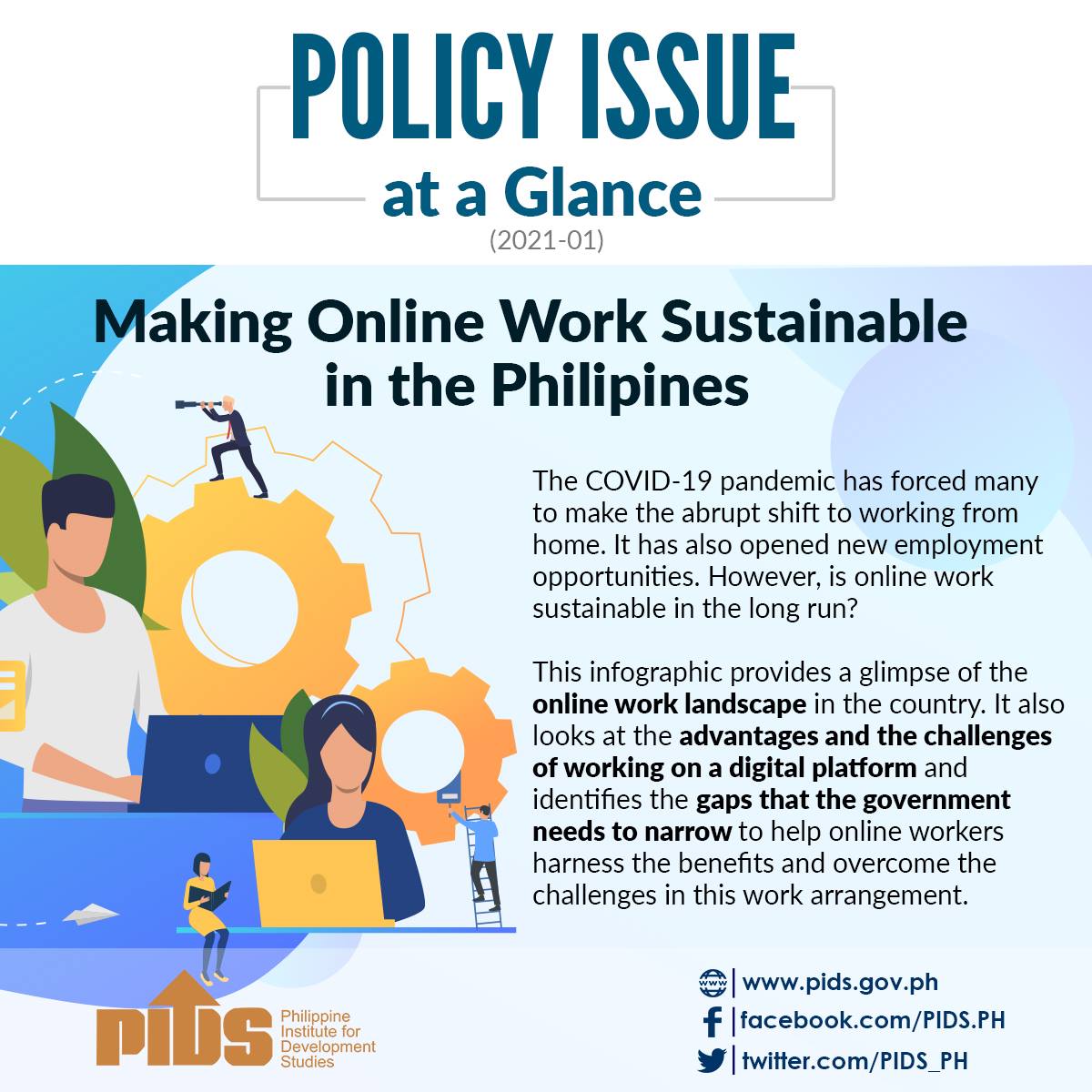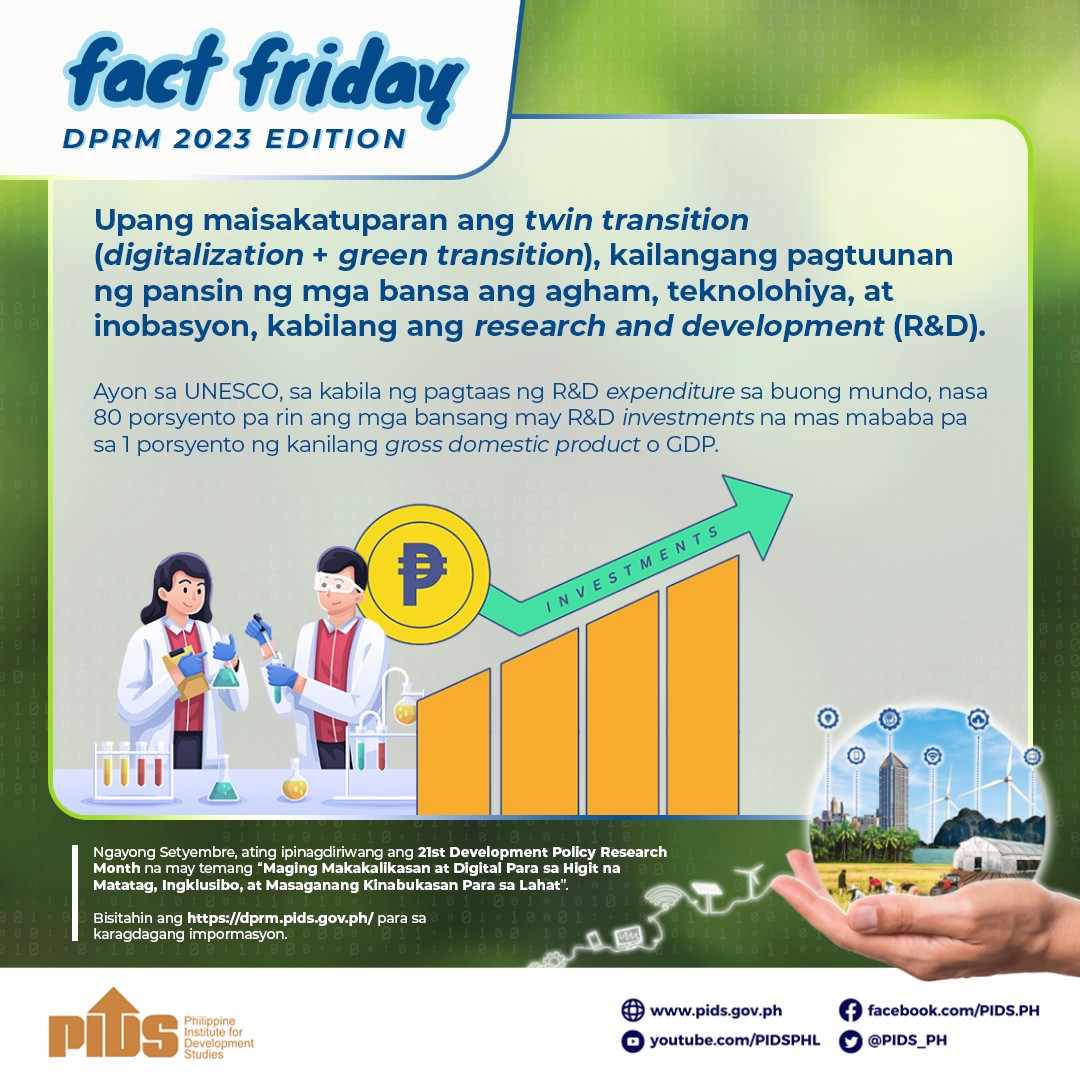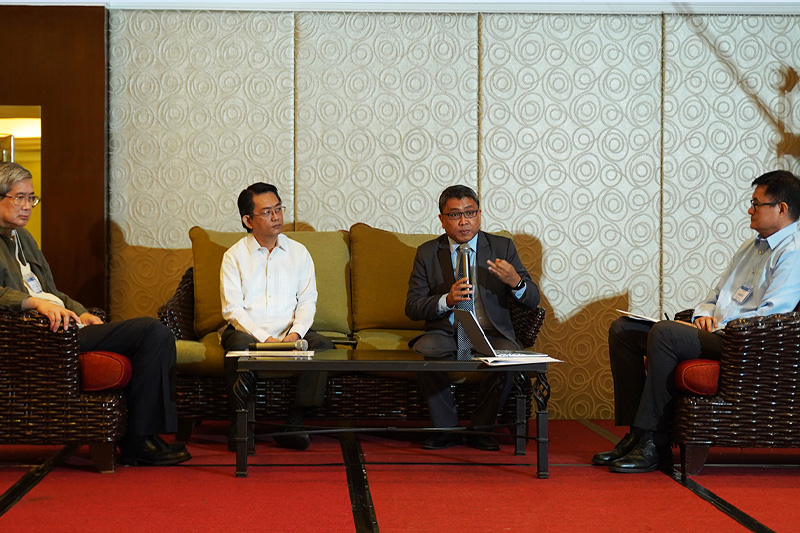
As the Asia Pacific Economic Cooperation (APEC) transitions towards a sustainable future, collaborative research and development is key to addressing diverse challenges and building an inclusive, digitally driven, and resilient Asia-Pacific community.
This was highlighted by experts in their discussion during the Philippine Institute for Development Studies (PIDS) and the Philippine APEC Study Center Network (PASCN) public forum titled “Advancing Sustainable Futures in the APEC Region through Greater Regional Integration”. This event was part of the 2023 PASCN Planning Workshop that aims to gather PASCN members to review the network’s progress and develop plans and strategies moving forward.
In his opening remarks, PIDS President Dr. Aniceto Orbeta Jr. pointed to rapid economic integration, digital transformation, economic disparity, and environmental sustainability as some of the critical challenges demanding attention. According to him, “navigating these complexities necessitates the collective expertise of researchers, policymakers, and academics to shape effective solutions and chart a course toward sustainable growth”.
APEC is embracing this reality according to Director-General Marcos Angelo Punsalang of APEC PH National Secretariat. DG Punsalang, one of the forum presenters, highlighted the organization’s move beyond traditional economic drivers to address pressing issues like health pandemics, emergency preparedness, and climate change.
Adaptable policies are crucial to navigate these new frontiers, emphasized another presenter, Department of Trade and Industry Undersecretary Atty. Allan B. Gepty. Inclusive trade encompassing areas like development sustainability, gender equality, and indigenous peoples inclusion must be prioritized. Thus, “there is a need to ensure everyone benefits from APEC’s policies,” he said.
This quest for adaptable solutions paved the way for Tech for Good Institute-Singapore Program Manager Mr. Keith Detros’ exploration of digitalization’s opportunities and challenges, highlighting the need for a “confident digital society” equipped to address these complexities.
Meanwhile, Dr. Glacer A. Vasquez, Researcher at the APEC Secretariat’s Policy Support Unit, provided historical context, explaining the transition from the Bogor Goals, focused on trade liberalization, to the APEC Putrajaya Vision 2040, which prioritizes quality growth, well-being, and collaboration. This shift mirrored the call for research and innovation echoing throughout the discussion, emphasizing the crucial role of evidence-based strategies in navigating the pandemic’s aftermath and building a resilient APEC community.
National Economic and Development Authority Assistant Secretary for Sectoral Policy and Planning Reynaldo R. Cancio also provided insights to the presenters’ discussions. He echoed the forum’s consensus: shared challenges require collaborative solutions. He emphasized the concrete economic and social implications of the presenters’ points, aligning them directly with the Philippine Development Plan’s goals for inclusive and sustainable growth.
The forum’s dialogue illuminated the importance of resilience, innovation, digitalization, and inclusivity as foundational principles for the region’s collective journey towards a prosperous and equitable future.
As Dr. Francis Mark Quimba, PASCN Director and PIDS Senior Research Fellow, aptly concluded, “the ideas and recommendations shared today are not just timely, but imperative for charting a course that is responsive to both our current realities and aspirations for 2040 and beyond”.
Watch the recording of the public forum here: https://www.facebook.com/PIDS.PH/videos/1540424816711254/. Meanwhile, photos of the event can be viewed here: https://www.pids.gov.ph/details/resource/seminars/photos-pascn-public-forum-2023.###

